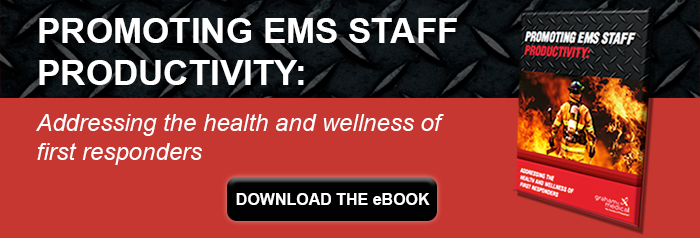 Post Traumatic Stress Disorder (PTSD) can be a serious issue for many first responders. This Washington, DC newscast references a University of Pheonix commissioned survey which reports that 80% of firefighters experienced exposure to a traumatic event, and the numbers for police and EMTs is even higher with over 90% reporting exposure to trauma. This extensive trauma exposure has consequences, with 33% of first responders surveyed reporting that they had been formally diagnosed with a mental health disorder, such as PTSD. Florida has recently passed legislation to help deal with this issue.
Post Traumatic Stress Disorder (PTSD) can be a serious issue for many first responders. This Washington, DC newscast references a University of Pheonix commissioned survey which reports that 80% of firefighters experienced exposure to a traumatic event, and the numbers for police and EMTs is even higher with over 90% reporting exposure to trauma. This extensive trauma exposure has consequences, with 33% of first responders surveyed reporting that they had been formally diagnosed with a mental health disorder, such as PTSD. Florida has recently passed legislation to help deal with this issue.
Recognizing a Need for Care
Understanding the severity of PTSD is not a new idea. Behavioral changes from hyper-vigilance to extreme stress to an overall lack of enthusiasm and depression can all be symptoms of PTSD. If left untreated, these symptoms can increase in severity causing significant disruptions in a person's life at home and at work, as well as physical consequences.
The suicide rates of first responders are staggering, at more than 10 times that of the regular population. Repeated exposure to severe traumatic stress is thought to be a partial cause of these numbers, making the recognition of this issue all the more vital.
First responders require care to treat PTSD just as they would require care to treat a sprained ankle or a concussion. Rather than treating this as a separate issue, both workplace regulations and employment laws are now starting to be changed to address this as the work-related injury it is.
Granting Legal Protections for PTSD
An important aspect of the care process involves the legal recognition of PTSD as a workplace injury. Florida has taken this idea one step farther, passing a bill signed by Gov. Rick Scott this March. This bill seeks to define harm from PTSD for firefighters, paramedics, and law enforcement whether there is associated physical harm or not. The expansion of these workers compensation benefits was considered a top priority to help combat the high rates of suicide among first responders. This bill could provide much-needed relief to first responders who are unable to work due to PTSD symptoms.
The passing of this legislation marks a turning point in how Florida law recognizes the needs for those employed as firefighters, EMTs, and law enforcement. Previous laws prevented payments to these employees unless a physical injury was present. In 2007, the law was modified to cover medical expenses for PTSD, but not lost wages. This 2018 bill which passed the state House unanimously extends that protection to include lost wages and the much-needed medical care.
While an injury may be invisible to others, that does not mean it is not hurtful and harmful to those suffering from it. Traumatic stress may not always leave visible scars, but the effects on the lives of first responders can be significant. Treatment is vital to reducing stress and promoting a healthy and productive workplace at your station or clinic. Learn more about promoting EMS health and productivity with Graham Medical, makers of the MegaMover® Transport Unit.

